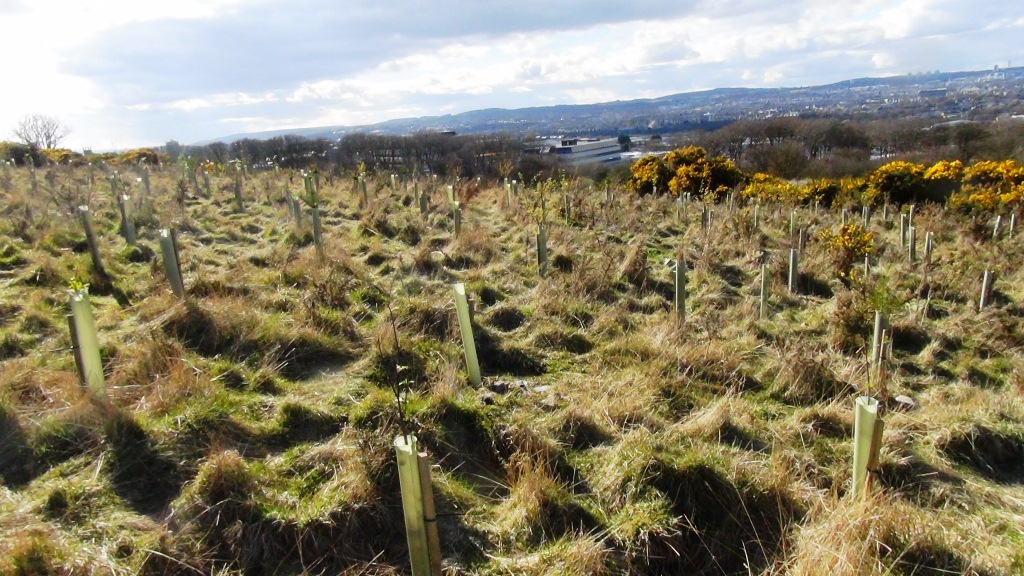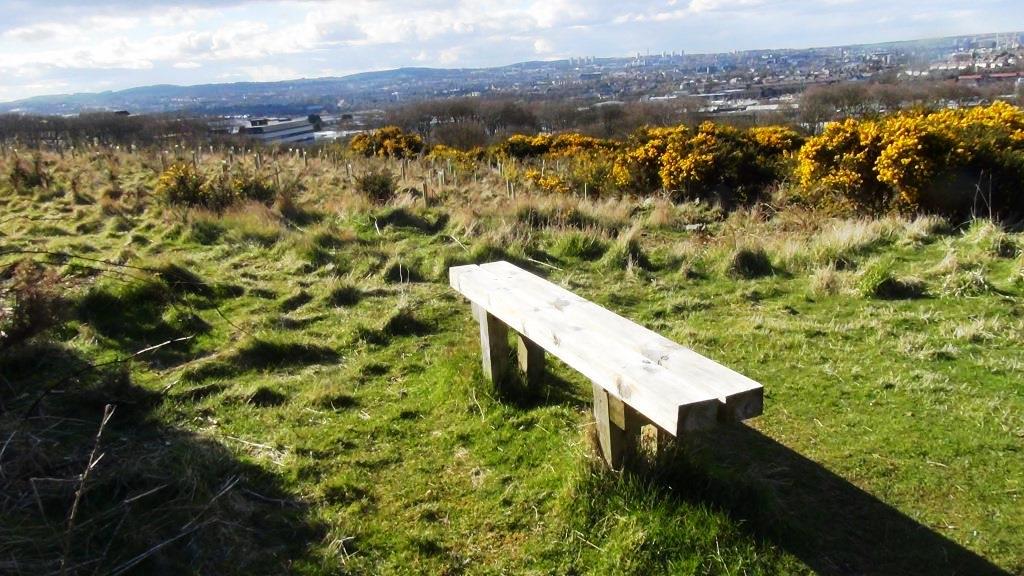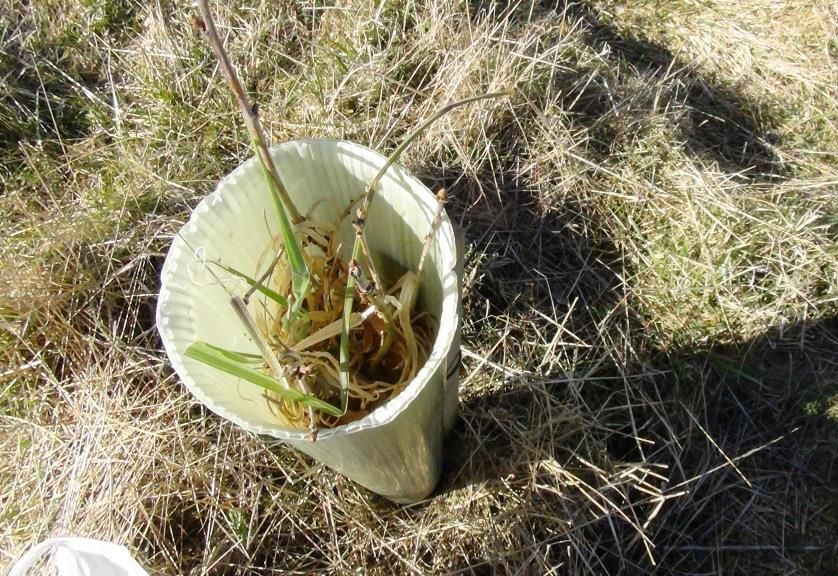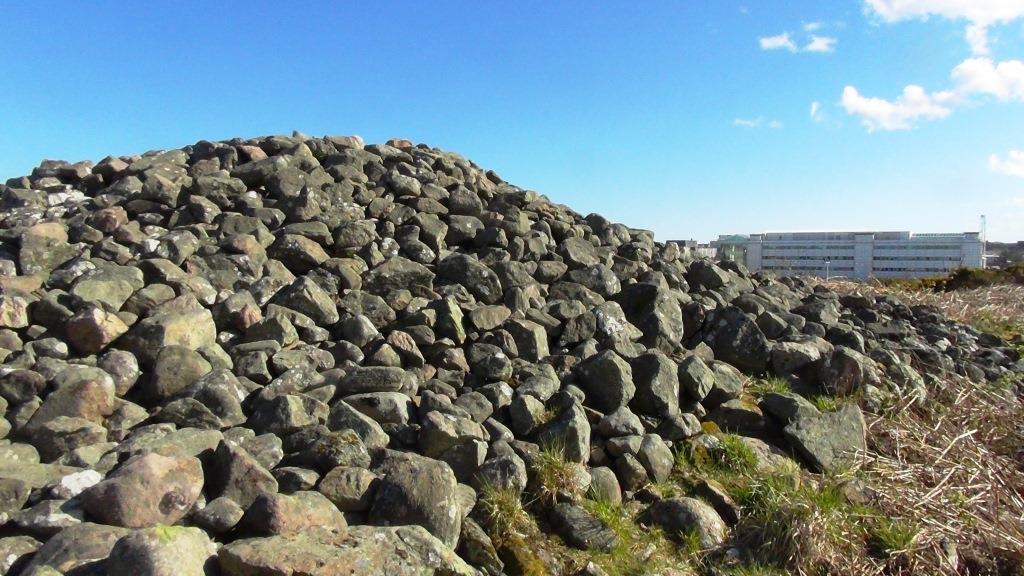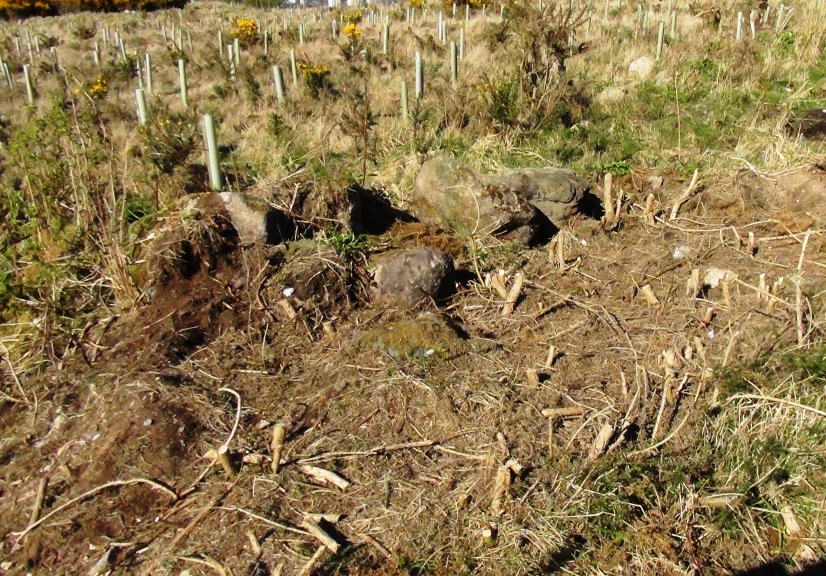Suzanne Kelly looks back at a variety of City issues involving Peter Leonard, Director of Housing Environment and Infrastruccture. She concludes, while he is on sick leave following vacation, that in her opinion, it’s time for him to go.
 Many people in Aberdeen tend to think the councillors are to blame for all the many, many mistakes, flawed plans, waste of money, and bad decisions that take place.
Many people in Aberdeen tend to think the councillors are to blame for all the many, many mistakes, flawed plans, waste of money, and bad decisions that take place.
The truth is that they only get to vote on reports put before them by officers, and officers can and do drive agenda and stop plans they don’t like. Staff too are controlled by the officers.
They are vilified for complaining or resorting to whistle-blowing when complaints to managers fail.
Aberdeen Voice is aware of more than one case of staff being micro-managed and having their work time scrutinized to the last minute. There are many people who, while worried about being discovered, want to talk about negative experiences with officers, and that includes Pete Leonard.
Head of Housing & Environment Pete Leonard has been implicated in a catalogue of bad decisions.
Having just missed a chance to apologise to the public over the cremation scandal so he could holiday, he is now off sick. Reports suggest he will remain out of the office – until terms of his final severance package can be ironed out. Many find his continuing in his post is now untenable following the cremation report – and the public has not seen the report commissioned by the Chief Executive.
My long-running interaction with him over the destruction of the Tullos Hill is no secret. He insisted on deer slaughter: when established consultants offered free help, they were rejected.
The slaughter was called ‘abhorrent and absurd’ by the Scottish SPCA in the circumstances. The expensive, unsuccessful attempts to establish trees on the hill are his responsibility – he declared in formal reports the scheme would be cost neutral. (Tullos is a former waste dump with little topsoil; the government’s own departments have written that establishing trees there is unlikely. However, it’s made quite a bit of money for consultants, suppliers, and deer stalkers).
Leonard’s insistence to the Housing & Environment Committee that the Tree for Every Citizen Scheme would be ‘cost neutral’ has cost well into a five-figure sum (and caused more than 36 deer to be culled needlessly) and may result in further expense to taxpayers soon. A councillor’s proposal to keep the hill as a meadow with deer was quashed before it could be voted on: by Pete Leonard.
One of many ponderous reports flogging the dubious benefits of the Muse development of Marischal Square bears Leonard’s name. On 2 March 2016 this report recommends against asking the public for any further input on Marischal Square because the public might experience ‘consultation fatigue’ and may result in a ‘negative customer experience’.
Heaven forbid. Customer experience didn’t attract the council’s attention when, despite 3,000 citizens and 3 community councils demanding the deer be spared were ignored.
The idea was to have a temporary place under the arches where people could buy coffee and snacks
As to consultation fatigue, I think more people would prefer the chance to have their say and risk ‘fatigue’ than winding up with the monstrous white elephant at Marischal – where the Press & Journal will now call HQ for one year free – courtesy of the taxpayer.
By the way, after suggesting ‘consultation fatigue’ was real, the report goes on to steamroll the reader with jargon about including citizens to ‘participate in the development, design, and decision making services [how does a citizen participate in a decision making service??] to promote civic pride, active citizenship and resilience.’
Leonard has, in effect, proposed not fatiguing us with consultations while wanting our participation. Sounds like quite a balancing act; no wonder ‘resilience’ is also suggested.
There are many Aberdeen Voice readers who have fought to get basic housing repairs, fought to have housing suitable to the needs of the elderly and disabled, or even to have safe, habitable places to live. Some suggest the head of Housing & Environment needed to have a more hands on approach.
Who scotched the Cafe 52 plan to have a self-sustaining cafe in Union Terrace Gardens?
The idea was to have a temporary place under the arches where people could buy coffee and snacks, the Bothwell family were going to pay all the set-up costs, and volunteers were going to run it, as I recall. I do recall that the profits were all going to be churned back into improving the gardens. The departed Maggie Bochel even recommended this go through, and several councillors as well as many members of the public supported the plan.
Is it possible that a city council officer stepped in to stop this simple plan, and if so why? This may be a small side issue, but hopefully by now the point has been made that directors and officers can, and do, guide how and what a councillor gets to vote on.
As such, we need directors who are competent, who are capable, who are without bias, and who are accountable.
Where does the city most fall down? In its management of communities, housing and (obviously) infrastructure.
Who has been the responsible Director for Communities, Housing & Infrastructure for years? Pete Leonard.
Pete Leonard chose not to attend the public meeting that took place last week
Leonard is on a salary adjacent to £112k per year, plus a generous pension contribution. If he is allowed to remain in post following the various reports (public facing and secret) into the scandal of Aberdeen’s crematorium operations, something is drastically wrong.
Bereaved parents were told for years there would be no ash following cremation of their deceased children. In fact, the crematorium, under Leonard’s remit, was mixing the remains of children with those of unrelated adults, and in effect lying to parents. This went on for years.
Some of the parents impacted by this cruel deception are calling for those responsible to be let go. I join that call
Pete Leonard chose not to attend the public meeting that took place last week; he was on holiday. It was disappointing to the bereaved that he was not there; his non-attendance sent a strong message.
The report into the long-running contempt shown both to the deceased and bereaved and severe managerial failure can be found here. It makes damning reading. Here are some highlights:
A damning summary:
“There was no overall strategic management of the crematorium. Aberdeen City Council had significant challenges elsewhere. Pete Leonard, Director of Communities, Housing and Infrastructure since 2010, explained to the Investigation,
“…in terms of the focus of senior management attention, you focus on the things that you know need fixing and you focus on the things you know to improve and areas where you need to make savings and you’ve got to try and bring the public and elected members with you, that’s very much a focus.”
“It was clear during the Investigation that the current Environmental Manager, Steven Shaw and those above him [that would include Leonard – S Kelly] had remote and ad hoc involvement in the management of the crematorium or the staff. The Investigation was told by the current Crematorium Manager, Angus Beacom, that,
“…staff felt that, in their words, not mine, they had been somewhat neglected by senior management”
“Pete Leonard, Director of Communities Housing and Infrastructure told the Investigation,
“I guess I was fairly light touch in my management in terms of, I don’t think I had visited the site for some time.”
“Pete Leonard confirmed that the purchase of new cremators was an expensive capital project and that he “was more focused on keeping track of that“,
“I guess the crematorium for me was a case of things seem to be going ok so a light touch management was ok and I wasn’t really getting involved.
The crematorium, I guess, never really featured on my radar. I wish it had, but it never featured on my radar so it was kind of left alone.”
“The Head of Services, Mark Reilly, told the Investigation,
“…Now there was a gap between Steven (Shaw, Environmental Manager) and Derek Snow (Cremation Manager) that I didn’t particularly care for. I wanted to really look at the structure of Bereavement Services and crematoria and how that works and get one manager overseeing both.”
“The Investigation found that despite issues about infant cremation coming to public attention following the media coverage about Mortonhall Crematorium in December 2012, no changes in practice were instigated at Aberdeen until November 2013 and July 2014.
“Pete Leonard, Director of Communities Housing and Infrastructure, told this Investigation,
“And we had lots of conversations, so we’d be saying, well if some people are saying that they’re recovering ashes, how is that? Are they using different temperatures and all this? There’s a lot of speculation about ‘well, we’re not sure how they’re doing it, but they’re probably doing things like turning the ovens off at night and leaving the baby in to ‘slow cook‘ and do we really want to be doing that and what if the parents found out about that?‘ and there were issues being thrown in around emissions and if you turn the heating down then you might be breaking the emissions law. There didn’t seem to be any shared industry knowledge or best practice.”
“There was no evidence that any effort was made by anyone at Aberdeen City Council to clarify at exactly what age or stage ashes were available. The senior managers did not challenge what they were told despite the information emerging from Mortonhall Crematorium nor did they seek information from Seafield Crematorium, or even closer, Parkgrove Crematorium, to ascertain how these crematoria could have been obtaining ashes despite the Aberdeen position that none existed until the age of eighteen months to two years.
“Pete Leonard told the Investigation,
“Around about that time we received a letter from Sue Bruce (then Chief Executive of City of Edinburgh Council) with the scope of the inquiry that she had asked Dame Elish to perform and I had a conversation with Valerie Watts then Chief Executive of Aberdeen City Council. I said I’d been to see the crematorium team, they assure me everything is okay but I really think we need to get some objective people in to do an audit and investigation into some of the processes and ask them questions. That led PwC to do an investigation, which was very much process based. At the same time, myself and Mark Reilly went to visit the team, got more behind the scenes.
“I think not getting ashes had been for as long as they could remember. Certainly with the new cremators they didn’t. With the older ones I don’t think they did, but I think they said previously they may have done in the dim and distant past, there might have been something. I think they gave some examples there, but I can’t really recall.
I think it pretty much reflected what the guys said and looked at the records. On reflection I think we didn’t focus enough on behaviour. When subsequently things changed in terms of what people’s story was, my own reflection on myself was perhaps I could have been a bit more challenging around some behaviours.
I drew up the terms of reference for the report and cleared these with the Chief Executive but it was based on what Sue Bruce had sent through, it was very similar terms of reference.
I am asked if the auditors looked at records as opposed to wider processes. Yes, that was the case. I am asked if anyone was examining the actual operational processes of cremation itself. No there was not. I think the years picked for audit were aligned with the different types of cremators from what I can see. I think there were different changes to the record keeping and we kept records up to a certain date. I think somebody had written to say they’d had some issue around 2008 and that they received ashes so on the back of that, we said can you go further back and examine what the practice was then”
“Pete Leonard told the Investigation,
“Around about that time we received a letter from Sue Bruce (then Chief Executive of City of Edinburgh Council) with the scope of the inquiry that she had asked Dame Elish to perform and I had a conversation with Valerie Watts then Chief Executive of Aberdeen City Council. I said I’d been to see the crematorium team, they assure me everything is okay but I really think we need to get some objective people in to do an audit and investigation into some of the processes and ask them questions. That led PwC to do an investigation, which was very much process based. At the same time, myself and Mark Reilly went to visit the team, got more behind the scenes.
I think not getting ashes had been for as long as they could remember. Certainly with the new cremators they didn’t. With the older ones I don’t think they did, but I think they said previously they may have done in the dim and distant past, there might have been something. I think they gave some examples there, but I can’t really recall.
I think it pretty much reflected what the guys said and looked at the records. On reflection I think we didn’t focus enough on behaviour. When subsequently things changed in terms of what people’s story was, my own reflection on myself was perhaps I could have been a bit more challenging around some behaviours.
I drew up the terms of reference for the report and cleared these with the Chief Executive but it was based on what Sue Bruce had sent through, it was very similar terms of reference.
I am asked if the auditors looked at records as opposed to wider processes. Yes, that was the case. I am asked if anyone was examining the actual operational processes of cremation itself. No there was not. I think the years picked for audit were aligned with the different types of cremators from what I can see. I think there were different changes to the record keeping and we kept records up to a certain date. I think somebody had written to say they’d had some issue around 2008 and that they received ashes so on the back of that, we said can you go further back and examine what the practice was then”
“An audit by the company PwC LLP was duly commissioned and terms of reference agreed in March 2013. The auditors reported on 9 July 2013. This audit was limited in scope and did not look at the actual cremation operational processes but rather traced a sample of cremations to the supporting records and administrative process in respect of the cremation of stillborn babies and infants under the age of two.
“The audit report describes its work as to ‘undertake a data collection exercise and review the current procedures in operation to better inform the Council Officers’ understanding of arrangements and practices.’ The report was based on the documentation available but there is no indication of the Council seeking audit of the actual cremation working processes by a suitably qualified cremation industry expert or body such as the FBCA.
“Pete Leonard, Director, told the Investigation,
“There had been a conversation about use of trays and what have you and I was very nervous about health and safety and I guess I placed a lot of reliance on the internal audit which we scoped out in March and it reported in July 2013.”
“There was no evidence given to the Investigation that after the production of this audit report the Council challenged Derek Snow’s assertion that there were no ashes to be obtained from babies less than eighteen months old. At the very least the information provided by PwC should have alerted the Council to the inconsistency between their public position and what the audit disclosed from the past.
“There is no evidence of the contents of the report being probed or checked to ascertain the reason for the different outcomes in the sampled cases. This information should have been of particular interest given the Council’s public position that ashes did not exist for babies under eighteen months to two years.
“Derek Snow, the Crematorium Manager added,
“When I started in 1986 there was no written procedures or guidance for babies. As far as I know there’s still nothing like that at the moment.”
“Steven Shaw, the current Environmental Manager, said that it was clear to him that,
“we didn’t have written up simple guidelines. I pushed for them to write up the procedures.”
“Pete Leonard said,
“When we started speaking to the guys, it was very clear then that there were no practices which made me nervous. “
“Staff also had access to manufacturers’ manuals for the cremators they were using. Aberdeen City Council’s response noted in the 10 July 2013 PwC LLP internal audit report was that they would be formalising their written policy and would consider any findings that came from the Scottish Government’s review.
“However, when staff were interviewed by the Investigation in February 2015 there was still no formal written procedure, guidance, instruction or local training manual available to staff at Aberdeen Crematorium despite
- the recommendations of Lord Bonomy in his report of May 2014,
- the Mortonhall Investigation Report April 2014,
- the PwC internal audit recommendation of July 2013,
- interest expressed by the Scottish Parliament,
- press and extensive media coverage of the issues surrounding the cremation of babies throughout the period 2012-2014.
“Neither did the receipt of an anonymous letter result in such action. This letter indicated that the reason baby ashes were not being returned to families at Aberdeen was because babies were being cremated alongside the coffins of unrelated adults. Members of staff were still working on drafting the crematorium’s first Operational Procedures Booklet in early 2015.
“It was put to Pete Leonard, Director, that Derek Snow had suggested that he was only really a manager when it suited his line managers to treat him as such, that he was given very little scope to manage and was not given the opportunity to attend training. Pete Leonard replied,
“I couldn’t really say. I am asked if he ever made a complaint to me about the way he was being managed. No not at all, he seemed to be happy in his work.”
“This is in stark contrast to what former Environmental Manager, Sandy Scott said about Derek Snow wanting to leave since 2006. Sandy Scott told the Investigation,
“Derek Snow did not want to be at the Council. He made it quite clear he wanted to leave and I did some investigating and spoke to my Head of Service but we felt we couldn’t let him go at that point. It was always a feature of our one to ones as he wanted to bring it up with me.”
“Pete Leonard, Director of Communities Housing and Infrastructure said,
“I guess I felt really let down and right from the word go, what we’d said to the guys was ‘we’re not going to judge you on what’s happened, when you’re in an industry and you follow historic practices, sometimes you might find yourself doing something that culture accepted before. Something which might look horrific but you’re caught up in the middle of that and you’re just doing what you’ve always been told.
“So this is about understanding what’s going on’. We had said, ‘if there’s anything, anything at all, now’s the time to get it out, you’ve got our full support’. We couldn’t have emphasised that more and so to then find out that the guys were lying and they’d been so convincing …I was bloody angry to be honest but really upset. Then I was really upset because of the impact on families.
“I’ve got young children myself and you can empathise. So then we had to move into trying to figure what happened and I wasn’t looking at punishing anybody, I just wanted to figure out what had been going on and we don’t really know. I mean, having gone through the experience of believing what they said before, to be honest, anything they said, I took with a pinch of salt.
“Could be true, it maybe isn’t true and there was no real way I got that mechanism to get to the truth. The investigation may have more success.”
“this was a section of the City Council working in almost complete isolation without any strategic direction, development or quality control of the service, so far as it related to babies, infants and non-viable foetuses. There was little knowledge by Senior Management of the service provided to the families of these babies.
“There was insufficient interest taken or leadership shown by management
“much of what was learned by Cremator Operators at Aberdeen was received wisdom from more experienced peers. The extraordinary belief that there would be no recovered ashes from babies up to the age of eighteen months or two years was contradicted by what was known to be recovered in many other crematoria as well as in Aberdeen itself in earlier years
“The cremation of babies along with unknown adults is an unethical and abhorrent practice which will offend the sensibilities of the wider community and cause great distress to those whose babies were cremated there. It will also cause profound concern to the next of kin of unrelated adults who may have collected and continue to retain ashes of loved ones cremated at Aberdeen which also contain the ashes of a baby or one or even several non-viable foetuses
“When obliged to consider this issue with the commencement of the Mortonhall Investigation and during the separate opportunity to explain their position to Lord Bonomy and his team the true picture at Aberdeen Crematorium was not disclosed. The Infant Cremation Commission was misled about the practices taking place.
“It was clear from the interviews of staff in early 2015 that despite the passage of time since the Mortonhall Report, the report of the Infant Cremation Commission and extensive media coverage of the circumstances at Mortonhall Crematorium that staff had not yet been properly briefed or briefed at all to allow them to have an accurate understanding of the physiology of the bones of foetuses, stillborn babies and infants.
8. The most senior level of management at Aberdeen must provide strong leadership and now take full responsibility for the effective management of the crematorium. It must also ensure that immediate and appropriate training takes place and that effective and ethical practices are maintained. This relates not only to a change of working practices but to an assurance that the culture of the organisation and the knowledge and understanding is such as to prevent any future abuse of the trust of those families who have placed the remains of their loved ones in their care.
10. As with other crematoria there was a total absence of any local written instruction or guidance. This remained the case even in 2015 after an audit report of 2013 which highlighted the lack of written procedure. This meant that the actual practices employed in the crematoria were not documented and available for inspection by normal quality assurance procedures. Had such written guidance been available it may have alerted Cremator Operators to the deviant nature of their practices.
11. By allowing the predicted outcome rather than the actual outcome to remain in the disposal column Aberdeen City Council created a situation where the inaccurate information was allowed to remain on the Register. Although the inaccuracy was identified no steps had been to correct the accuracy of the Register. This casual and careless approach to a statutory obligation is of considerable concern.”
My conclusions
There is contradiction about Leonard’s position in the Muse report (do we not consult people so as not to ‘fatigue’ them or do we involve them in the design, etc).
Leonard contradicts himself again in his testimony here. At one stage we’re asked to think of him as being a father who’d be concerned about the families; and then we have the inexcusable on the appalling choice of words about ‘slow cooking babies’ and ‘what if the parents found out’. Either you are a caring, empathetic parent – or you use that kind of language and seek to keep your parent peers in the dark.
Claims that there was no way to find out about any industry best practice or operational standards are debunked within five minutes by anyone with internet access. A search would swiftly find The Federation of Burial and Cremation Authorities(FBCA). This organisation told me:
“The Federation of Burial and Cremation Authorities(FBCA) represents all but two of the operational crematoria in Scotland and around 85% of crematoria in the whole of the UK.
The FBCA has existed since 1924 and represents the owners and operators of cemeteries and crematoria in the UK.
All members of the FBCA have to confirm that they operate in accordance with our Code of Cremation Practice on an annual basis.
The process of cremation is regulated by Sepa and there are parameters which have to be maintained throughout each and every cremation, whether adult or infant, however it is important that special measures are taken during the cremation of very young babies to ensure that the conditions within the cremator provide the best possible opportunity for the recovery of ashes at the completion of the process..
We provide the training and examination process used at the majority of crematoria in Scotland and we strive to ensure that Best Practice and the highest standards are met at all times. “
– email from R Powell of FBCA to S Kelly 5 September 2016
For someone with a director’s mandate covering the crematorium, ignorance of this easily-found knowledge is bad enough; it is compounded by the evident lack of interest in pro-actively seeking for it.
Changes were to have been made in documentation for procedures; this went un-remedied for years. Should the buck have stopped with Leonard?
The curtains are drawn:
It should be noted that there is a Customer Services Standards document – but it is being updated, and requests for a copy of the current one have gone unanswered. Aberdeen Voice also made an appointment to view the Officers’ register of interests – and hours before the appointment the city cancelled on the grounds ‘personal data’ would be in the records.
The legal team decided that a Freedom of Information request would be needed, and that while councillors’ records are all electronically available, the records for officers and directors were off limits.
Let’s hope the wait to see the records won’t take too long (all FOI requests I have made to the city have been just to the deadline or have been late).
Enough:
I watched as the arrogance and assurances from Leonard led to the destruction of a herd of deer that had lived on Tullos for decades without needing any cull. I watched as he stubbornly refused free advice on non-lethal culling, refused to take on board the soil report saying that trees are unlikely to establish while approving hundreds of thousands of pounds on consultants, fencing, trees and deer hunters.
I watched as a friend whose stillborn child was told there would be no ashes to scatter after cremation some years ago. I worried as I helped arrange a cremation fairly recently as to what was going on.
I watched as the hated Muse project was foist upon a largely unwilling, certainly poorly consulted public – who will now subsidise the Press & Journal with a year’s free rent.
I watched as parents were further disrespected by Leonard deciding not to face them at the crematorium public meeting as he chose to vacation instead. I’ve listened to complaints of people with health issues in housing inadequate to their needs.
I’ve heard from people who waited months and months for simple housing repairs. I’ve heard from people living in housing where anti social behaviour runs rampant because the city keeps no residential staff to ensure safety. I’ve heard from staff who have felt bullied under his regieme.
I now want to watch as Leonard leaves his post with as small a remuneration as legally possible, and leaves quickly.
- Comments enabled – see comments box below. Note, all comments will be moderated.
 Tally ho! Another week flies past in Aberdeen. The original BrewDog bar (Old Dog – Gallowgate as opposed to New Dog – Castlegate) have hung up some of my recent paintings and just hosted another successful, fun, packed Drink and Draw session. Their ‘Live Dead Pony’ – it’s the addition of live yeast to their popular brew Dead Pony Club makes it ‘live’ – has proven popular as well.
Tally ho! Another week flies past in Aberdeen. The original BrewDog bar (Old Dog – Gallowgate as opposed to New Dog – Castlegate) have hung up some of my recent paintings and just hosted another successful, fun, packed Drink and Draw session. Their ‘Live Dead Pony’ – it’s the addition of live yeast to their popular brew Dead Pony Club makes it ‘live’ – has proven popular as well. I’m sometimes asked, ‘don’t you miss America?’
I’m sometimes asked, ‘don’t you miss America?’